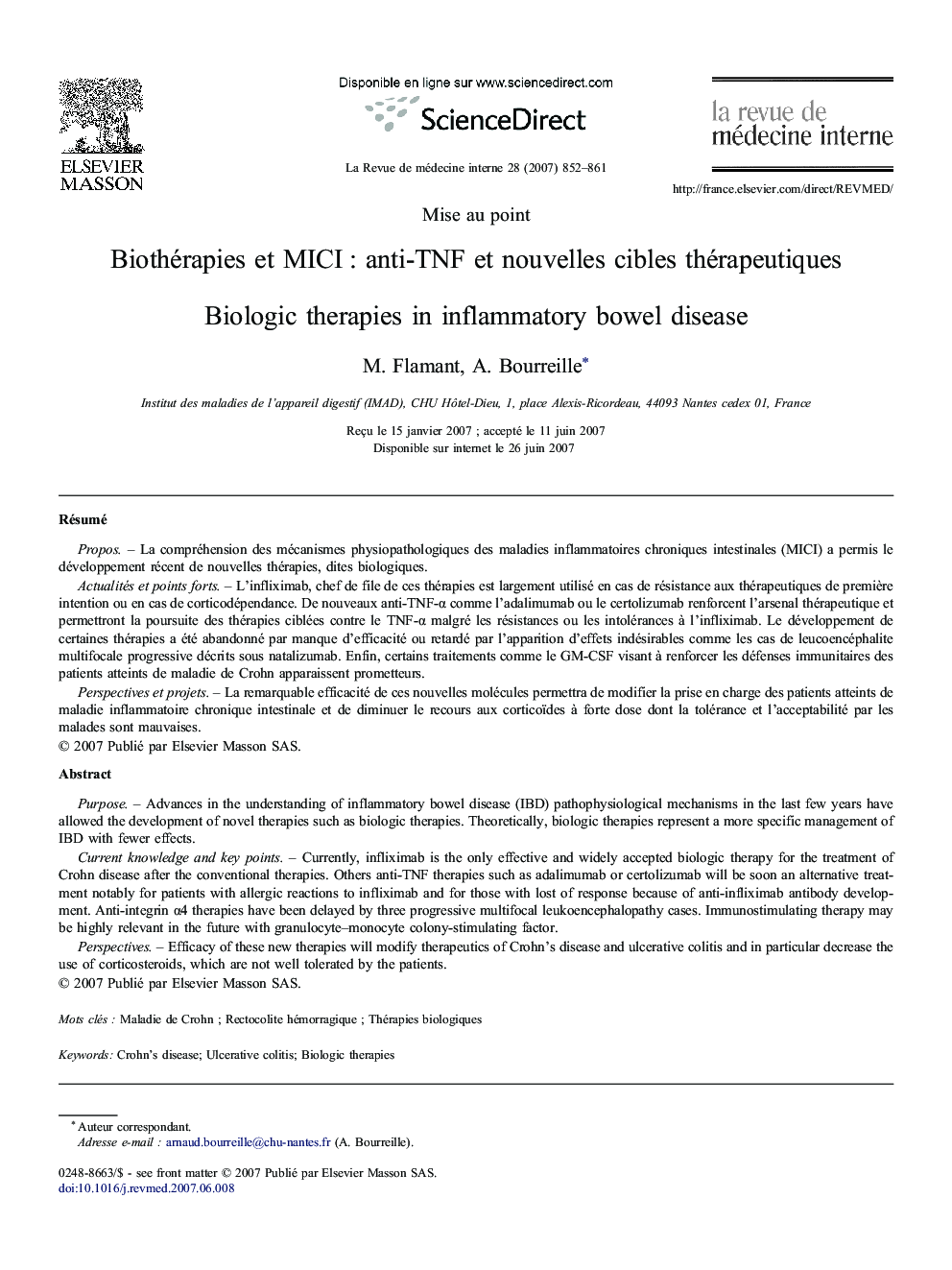| کد مقاله | کد نشریه | سال انتشار | مقاله انگلیسی | نسخه تمام متن |
|---|---|---|---|---|
| 3022560 | 1182406 | 2007 | 10 صفحه PDF | دانلود رایگان |

RésuméProposLa compréhension des mécanismes physiopathologiques des maladies inflammatoires chroniques intestinales (MICI) a permis le développement récent de nouvelles thérapies, dites biologiques.Actualités et points fortsL'infliximab, chef de file de ces thérapies est largement utilisé en cas de résistance aux thérapeutiques de première intention ou en cas de corticodépendance. De nouveaux anti-TNF-α comme l'adalimumab ou le certolizumab renforcent l'arsenal thérapeutique et permettront la poursuite des thérapies ciblées contre le TNF-α malgré les résistances ou les intolérances à l'infliximab. Le développement de certaines thérapies a été abandonné par manque d'efficacité ou retardé par l'apparition d'effets indésirables comme les cas de leucoencéphalite multifocale progressive décrits sous natalizumab. Enfin, certains traitements comme le GM-CSF visant à renforcer les défenses immunitaires des patients atteints de maladie de Crohn apparaissent prometteurs.Perspectives et projetsLa remarquable efficacité de ces nouvelles molécules permettra de modifier la prise en charge des patients atteints de maladie inflammatoire chronique intestinale et de diminuer le recours aux corticoïdes à forte dose dont la tolérance et l'acceptabilité par les malades sont mauvaises.
PurposeAdvances in the understanding of inflammatory bowel disease (IBD) pathophysiological mechanisms in the last few years have allowed the development of novel therapies such as biologic therapies. Theoretically, biologic therapies represent a more specific management of IBD with fewer effects.Current knowledge and key pointsCurrently, infliximab is the only effective and widely accepted biologic therapy for the treatment of Crohn disease after the conventional therapies. Others anti-TNF therapies such as adalimumab or certolizumab will be soon an alternative treatment notably for patients with allergic reactions to infliximab and for those with lost of response because of anti-infliximab antibody development. Anti-integrin α4 therapies have been delayed by three progressive multifocal leukoencephalopathy cases. Immunostimulating therapy may be highly relevant in the future with granulocyte–monocyte colony-stimulating factor.PerspectivesEfficacy of these new therapies will modify therapeutics of Crohn's disease and ulcerative colitis and in particular decrease the use of corticosteroids, which are not well tolerated by the patients.
Journal: La Revue de Médecine Interne - Volume 28, Issue 12, December 2007, Pages 852–861